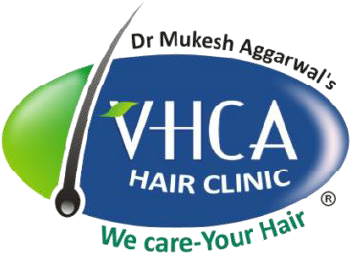Since 1928VHCA Hair Clinic World's 1st Ayurveda Hair Clinic
Acne
Acne is a common skin condition that occurs when hair follicles become clogged with oil, dead skin cells, and bacteria. It manifests as pimples, blackheads, whiteheads, and in severe cases, cysts or nodules. While acne is most prevalent among teenagers due to hormonal changes, it can affect individuals of all ages. At VHCA Ayurveda Hair Clinic, we believe in addressing acne holistically through natural and effective Ayurvedic remedies that promote long-term skin health.

Common Causes of Acne
Hormonal Imbalance: Fluctuations in hormones, particularly during puberty, pregnancy, or menstrual cycles, can trigger excess oil (sebum) production, leading to clogged pores and acne outbreaks.
Excess Sebum Production: Overactive sebaceous glands produce excess oil, which mixes with dead skin cells and blocks hair follicles, creating an environment for bacteria to thrive.
Bacterial Infection: The bacteria Propionibacterium acnes naturally exist on the skin but can proliferate in clogged pores, causing inflammation and acne lesions.
Diet and Lifestyle: Consuming foods high in refined sugars, dairy products, and fried foods can exacerbate acne. Stress, poor sleep, and lack of exercise also negatively affect skin health.
Environmental Factors: Pollution, humidity, and exposure to chemicals can irritate the skin, increasing the likelihood of acne breakouts.
Improper Skincare Routine: Using harsh or comedogenic products that block pores can worsen acne. Over-cleansing or scrubbing the skin too vigorously may irritate it further.

Symptoms of Acne
Pimples (Pustules): Small red bumps with white or yellow pus-filled centers are a hallmark of acne.
Blackheads and Whiteheads: Blackheads are open comedones that appear dark on the skin, while whiteheads are closed comedones that appear as small, flesh-colored bumps.
Cysts and Nodules: Severe forms of acne can result in painful, large, deep lumps beneath the skin's surface.
Redness and Inflammation: The surrounding skin can become red and inflamed due to infection and irritation.
Scarring: Severe acne may leave behind permanent scars if left untreated.


Ayurvedic Approach to Acne
In Ayurveda, acne is known as Yuvana Pidika, which is believed to be caused by an imbalance in the body's doshas—mainly Pitta and Kapha. Pitta represents heat, while Kapha represents oiliness. An excess of these doshas can lead to the accumulation of toxins in the skin, which triggers inflammation and blockages in the pores. The Ayurvedic approach aims to balance these doshas through diet, lifestyle changes, detoxification, and herbal treatments.
1. Detoxification (Shodhana): Detoxifying the body is a fundamental Ayurvedic approach to treating acne. Panchakarma therapies such as Virechana (purgation) help cleanse the digestive system, removing toxins that contribute to skin issues. This process purifies the blood and balances Pitta dosha.
2. Herbal Remedies: Ayurveda employs various herbs to soothe inflammation, control oil production, and heal the skin. Some of the most effective herbs for acne include:
Neem (Azadirachta indica): Known for its antibacterial and purifying properties, neem is highly effective in clearing acne and preventing future breakouts.
Turmeric (Curcuma longa): Turmeric’s anti-inflammatory and antiseptic qualities help reduce redness and swelling while preventing bacterial growth.
Aloe Vera (Aloe barbadensis): Aloe vera is cooling and soothing, reducing irritation and promoting skin healing.
Manjistha (Rubia cordifolia): This powerful blood purifier is excellent for treating acne and improving skin complexion.
Sandalwood (Santalum album): Sandalwood has cooling and anti-inflammatory effects that calm irritated skin and reduce acne scars.
3. Dietary Recommendations: Ayurveda emphasizes eating a balanced diet that pacifies the aggravated doshas. For acne, reducing spicy, oily, and fried foods is essential. Incorporating cooling foods such as cucumber, leafy greens, and fresh fruits can help balance Pitta and keep the skin clear.
4. Lifestyle Modifications: Stress is a known trigger for acne, and Ayurveda encourages practices like yoga, pranayama (breathing exercises), and meditation to manage stress levels. Adequate sleep and proper hydration are also crucial for maintaining healthy skin.
5. Skincare Routine: Ayurveda promotes the use of natural, non-comedogenic skincare products. Regular cleansing with herbal face washes, gentle exfoliation, and the use of oil-balancing creams made with Ayurvedic ingredients like neem, turmeric, and sandalwood can help control acne without irritating the skin.
Before and After
Before Treatment:
- Acne may range from mild to severe with visible pimples, blackheads, whiteheads, or cysts.
- Skin may show signs of inflammation, redness, and scarring.
After Treatment:
- Clearer skin with reduced acne and improved texture.
- Visible reduction in blemishes and inflammation.
- Minimization of scars and improved overall skin appearance.

VHCA Ayurvedic Treatments for Acne
At VHCA Ayurvedic Hair Clinic, we offer a range of personalized treatments for acne that address the root cause of the condition and promote long-term skin health.
Herbal Skincare Products: Our clinic offers Ayurvedic face washes, creams, and masks formulated with natural ingredients that combat acne-causing bacteria, soothe inflammation, and purify the skin.
Personalized Herbal Medicines: We offer customized Ayurvedic medicines to support internal detoxification, improve digestion, and purify the blood, leading to clearer skin.
Consultation with Experts: Our experienced Ayurvedic practitioners evaluate your unique skin type and dosha constitution to create a tailored acne treatment plan that aligns with your individual needs.
Connect for wellness: Begin Your Journey Today
